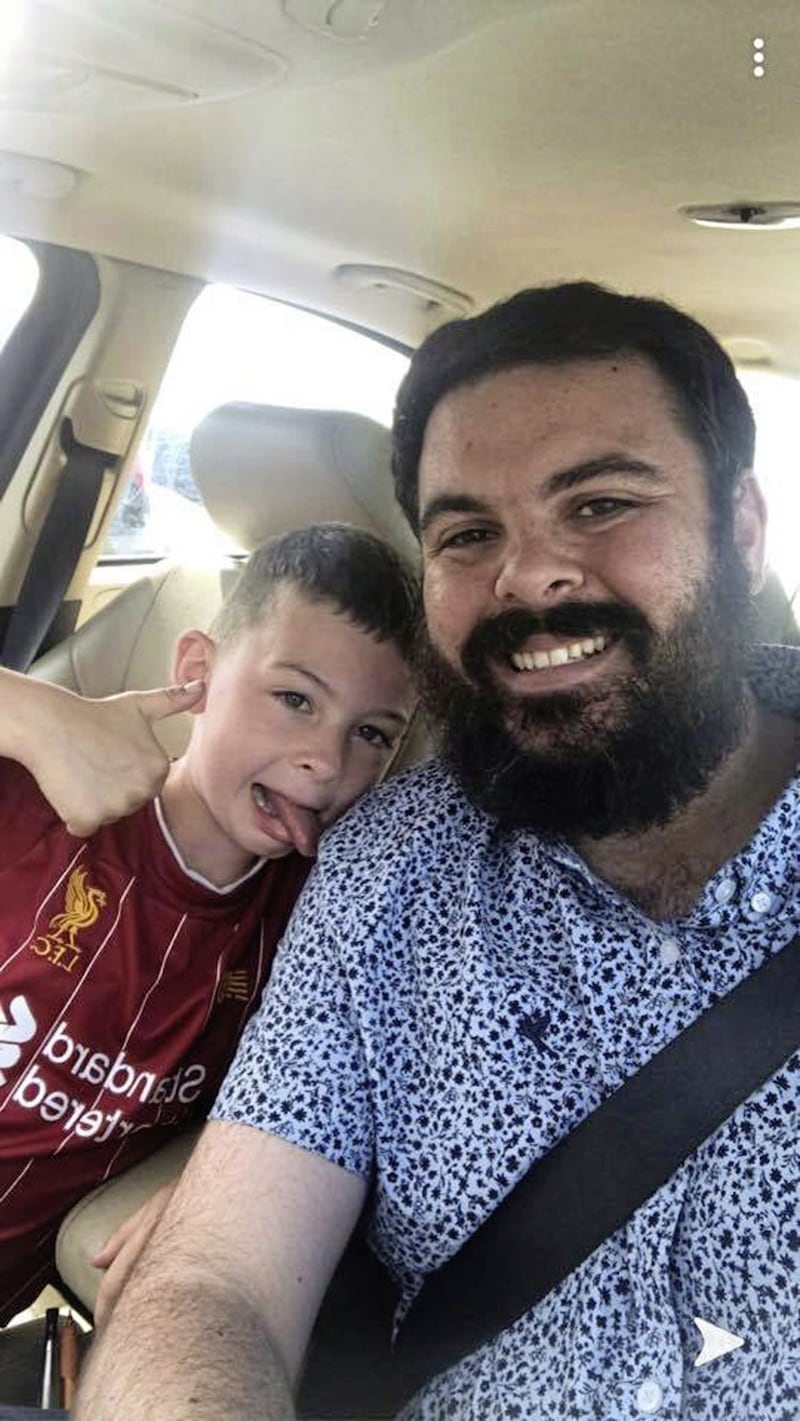“ETHAN'S earliest months were full of tears, tantrums, teething problems, sleepless nights and confusion. Although I have to admit, 99.9 per cent of these were from me, and not Ethan.”
These are the words of Derry man Jude Morrow, proud father of now five-year-old Ethan.
The parenting journey is difficult for any first-time parent. But for someone like Jude, who has high functioning autism, the challenges are intensified.
Jude didn’t just have to get used to changing nappies and making bottles, he also had to try to learn to interpret non-verbal cues, relinquish his strict routine and let go of his coping mechanisms for life.
“The routine of Jude Morrow was perfected with surgical accuracy. I was up at 6:45, I was in the shower at 7:05, I went down and had my porridge at 7:17, I got out to my old Rover 75 which had an old choke on it and had to run for 15 minutes, and then at 8 I was able to get into the car and stop on my way to work and be in work for 8:45," says Jude, who writes about the struggles of being an autistic dad and coming to terms with his own diagnosis in his book Why Does Daddy Always Look So Sad?
“I knew that Jupiter has 79 moons and where the swimming pools were located on the Titanic, yet I didn't know how to connect with this beautiful child who called me 'Daddy'.”
Jude was 11 when he was diagnosed with Asperger syndrome. However, his parents never told him of his diagnosis until he was 20.
“I always knew I was different to everyone else but I didn’t have a reason. Academically I was all right, though I struggled socially. I didn’t have many close friends and would have been a bit of a class clown to mask my differences and insecurities,” recalls the 29-year-old.
“My parents didn't want me to be labelled and, in hindsight, I don't blame them for that. But looking back now as a big hairy man, I maybe would have coped better with knowing why I was different.”
Jude went to study at Ulster University and qualify as a social worker; he's currently working in the community with older people. But it was the shock and reality of becoming a father that finally made him face up to his diagnosis.

Jude admits he struggled with the news of the unplanned pregnancy and the fact he was going to become a dad at age 22.
"I thought Asperger's was something I had grown out of, but when I found out Ethan was on the way, the behaviours I thought I had left behind came back," he says. "I like to plan my day, write lists and know what to expect. I would always try to avoid any change but I couldn't avoid becoming a dad.
"I wanted to know everything right away that was going to happen when the baby arrived. I spent hours dwelling on it and thinking about what I could do to prepare for it.”
Unfortunately Jude found very little information for a would-be father like himself.
"There is a wealth of information for parents of children with autism, but not much for parents with autism themselves.”
After his arrival, Jude adored baby Ethan, but as his son got older he admits the struggle increased. ??“I couldn’t really come to terms with the life change. I needed order and routine and that doesn’t come with children. As Ethan’s sleeping and eating patterns continually changed, I took it really personally. And when Ethan asked his granny 'Why does daddy always look so sad?' (from which the title of his book is taken), I realised things had to change.”
Intensive CBT therapy counselling, as well as writing down his own life story, combined to help Jude accept his Asperger’s diagnosis, bond with his son and literally open a new chapter in his life.
“Ethan is my hero. If he hadn't been born I would still be living a life of denial.”
Jude first self-published his book on Amazon, in May 2019. It became a best-seller and was picked up by Beyond Words Publishing (who published Rhonda Byrne's book The Secret) and was republished worldwide last month.
Jude has been overwhelmed by the response to his story, with many messages of thanks through social media. He has spoken to a number of autism support groups about his journey and due to coronavirus social-distancing restrictions, he plans to continue that virtually in August.
In fact before Covid-19 Jude was due to go on a US book tour, including a guest lecture at the prestigious California university, Stanford.
“As unremarkable as my life story is it's something that has resonated with a lot of people and demonstrates that those with autism can be successful, be happy, and be good parents.
“The main theme of the book is acceptance. I always denied who I was and developed toxic habits to keep my true self hidden. I will never free myself of Asperger's but I can learn to adapt to new situations, and this helps me connect with my son in a way I didn't think I was capable off.”
Ethan, who is not autistic, is very understanding of his father’s needs and Jude believes that even at a young age he is a very compassionate child.
“I still have my struggles. Some things I would take Ethan to, like a play centre, would involve a lot of noise and shoes squeaking on wooden floors. Those situations are difficult for me and whilst I can manage it, Ethan can see when I’m struggling and would come over to me and say 'Daddy do you want to go home now?' He’s an understanding wee chap.”
Why Does Daddy Always Look So Sad? is available now worldwide on paperback, ebook and audio from all major online retailers. For further information visit Judemorrow.com







